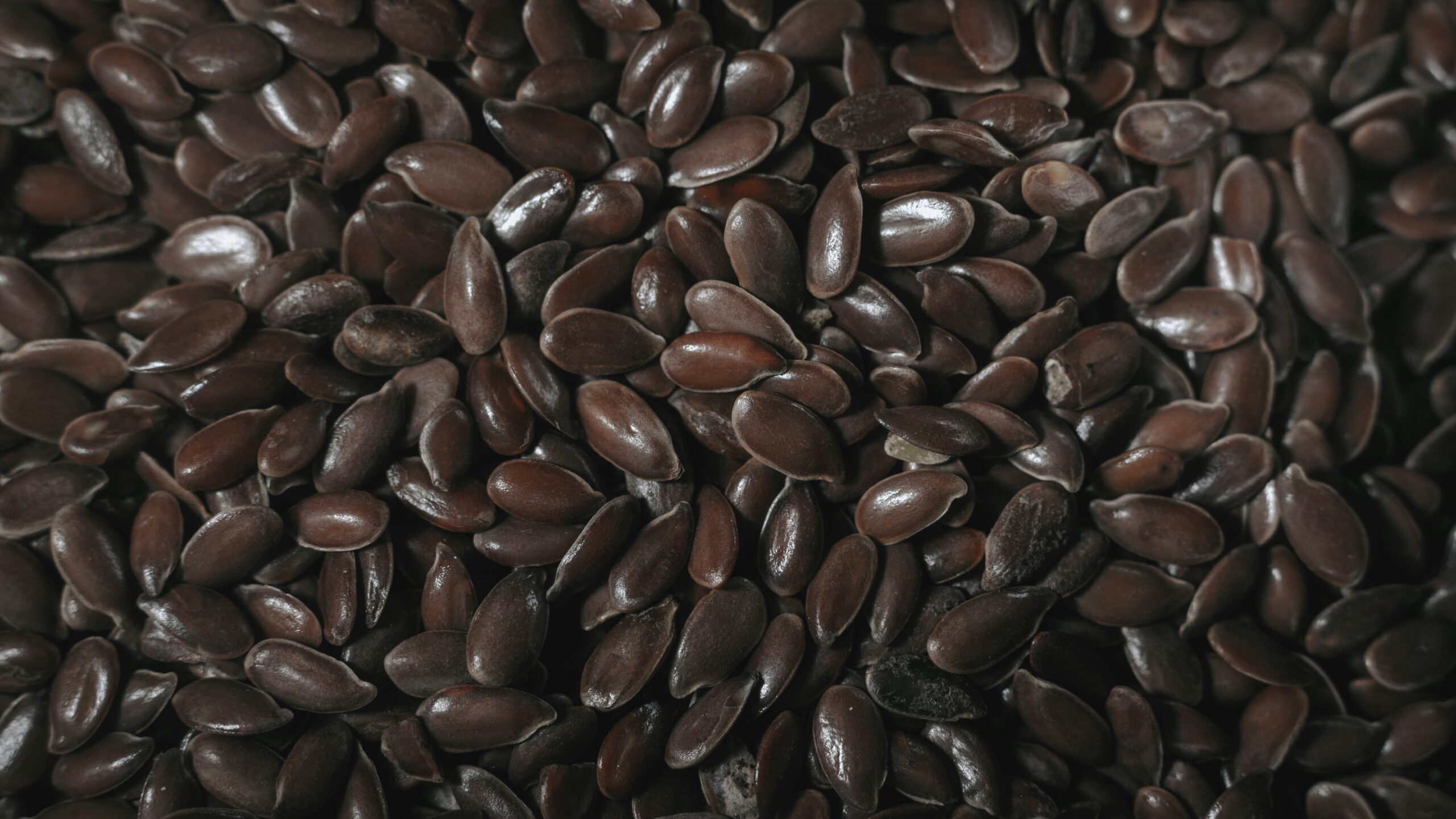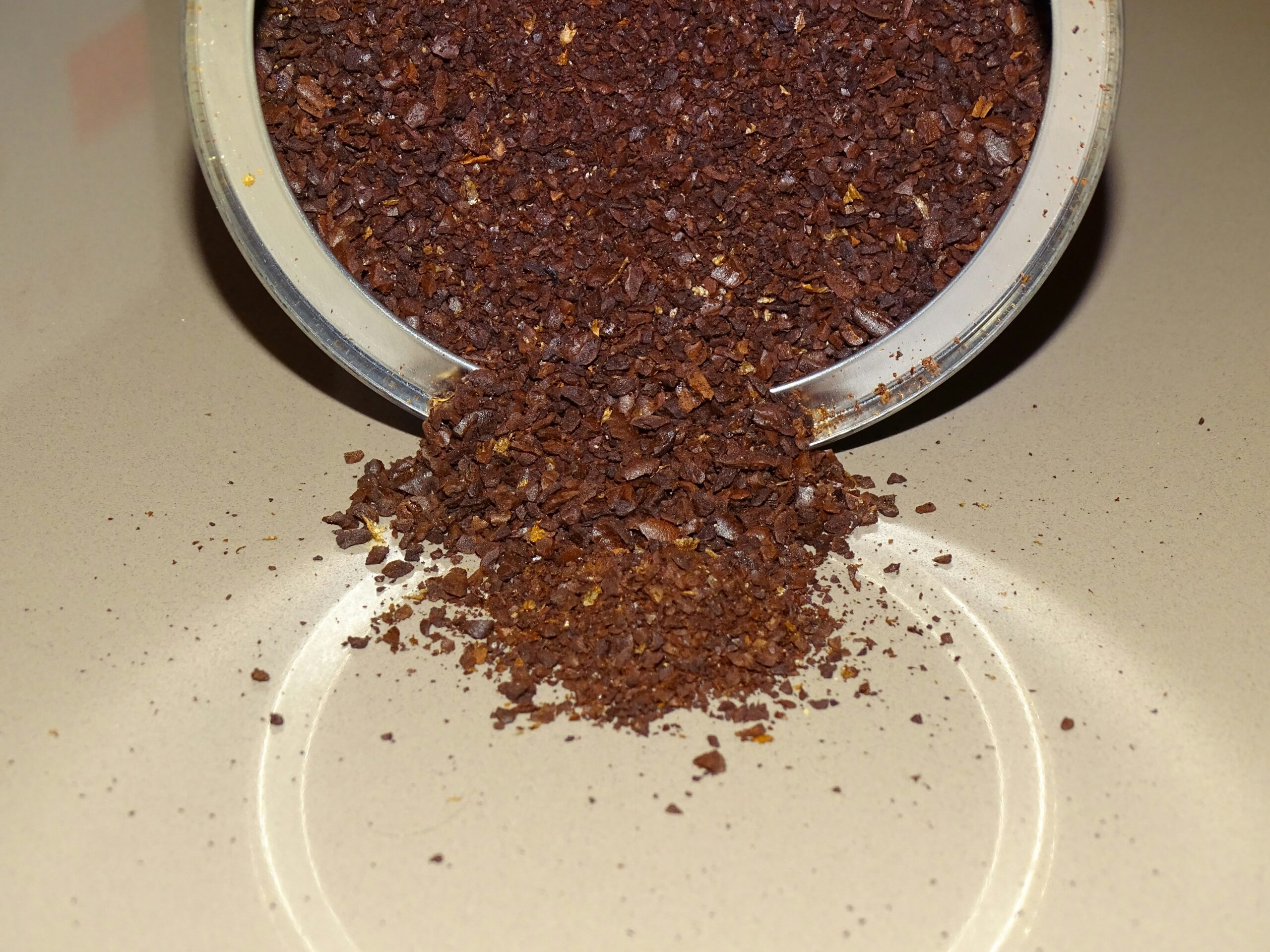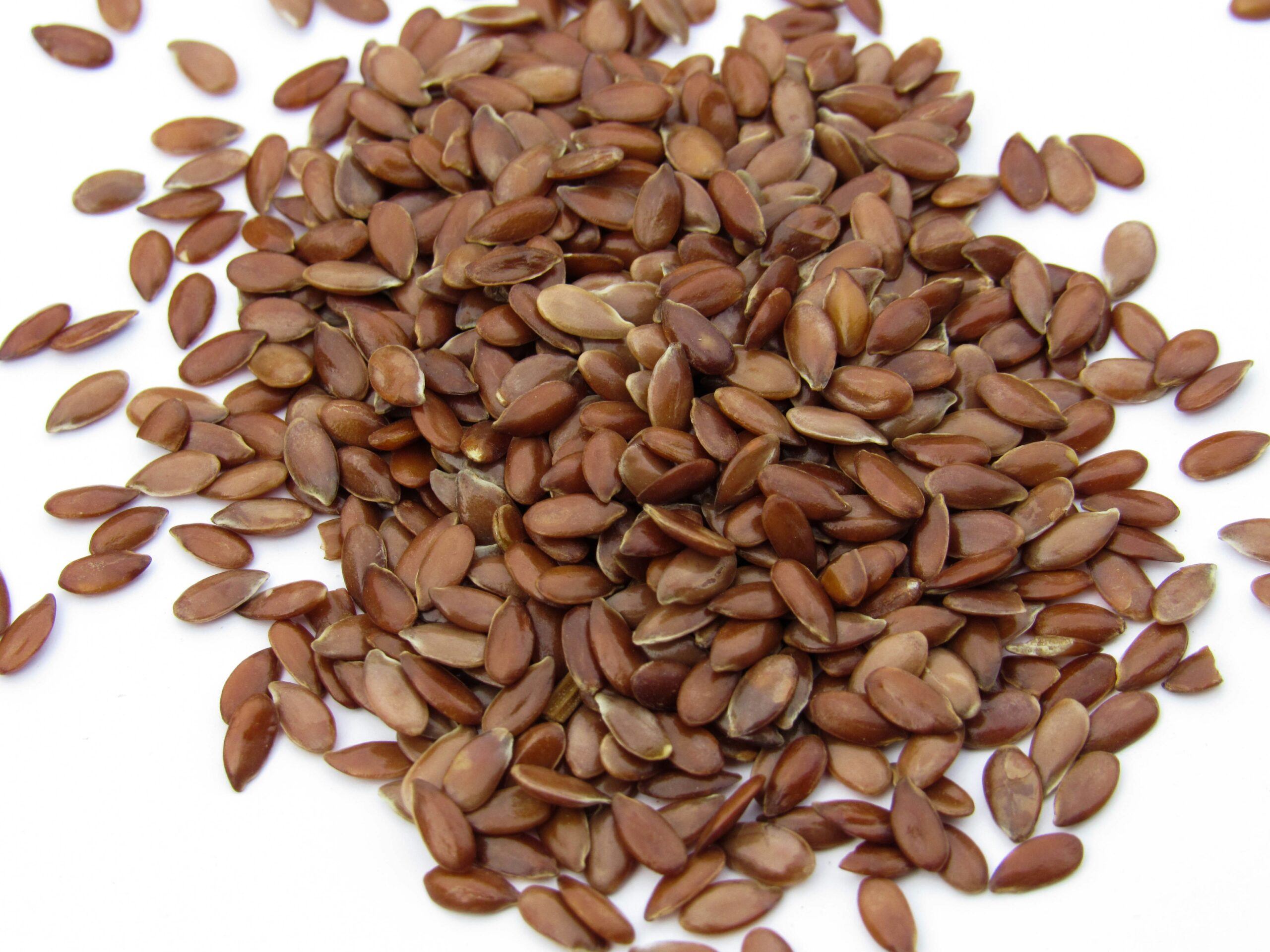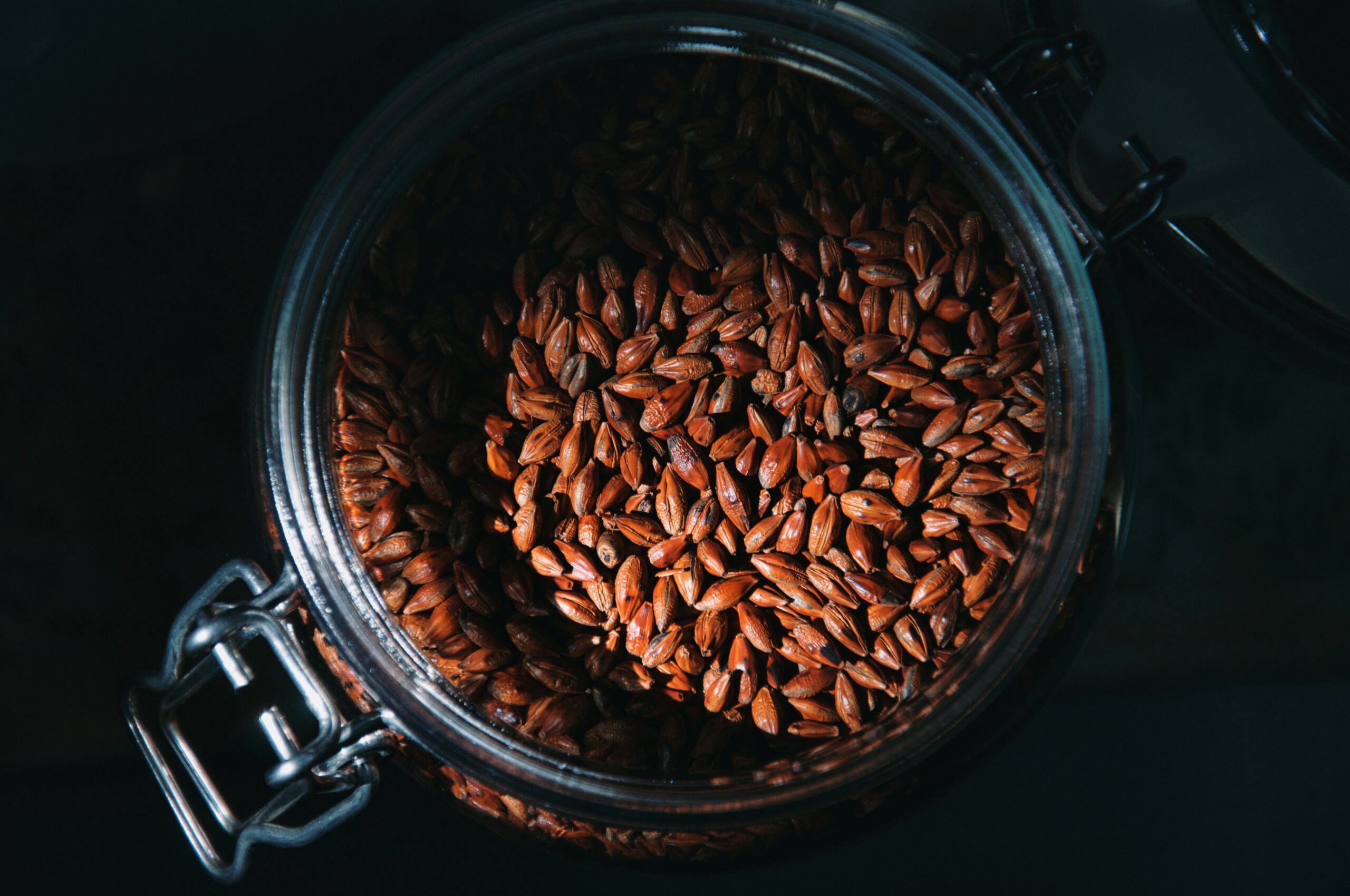Flaxseed is a seed from an edible flax harvested from a blue flowering plant. The flax plant originates from the Mediterranean basin and western Asia. Flaxseed is a global product, but today, Canada has been recognized as the world leader in the production of flaxseed. The plant is a source of flax fiber, cultivated for thousands of years, but now established mainly as the source of flaxseed oil.
Flaxseed used for human consumption comes primarily in whole flaxseed, ground flaxseed, and flaxseed oil. The seeds are oval and flat, with a sharp apex. They are shiny with a smooth `surface and range from dark brown to yellow. Flaxseed has a nutty flavor and crunchy, chewy texture.
One of the best vegetarian sources of high-quality nutrients is flaxseed. Because of its multiple nutritional properties, flaxseed has been identified as a superfood, i.e., a food of natural origin characterized by its multiple bioactive components and its wide array of health-promoting qualities. Flaxseed supplementation may play a significant role in disease prevention related to diet, which is why it pays to learn about the miraculous properties of flaxseed. This is where you can also find out if it is safe to eat edible seeds.

Depending on which form of flaxseed we consume, the stability of flaxseed with its bioactive components can be quite different. Flaxseed should rather be eaten in ground form![]() for the high bioavailability of bioactive components. In addition to the concern of freshness, flaxseed should also be stored correctly. Whole flaxseed should be stored in air-tight containers at room temperature to maintain its health-benefit properties. Ground flaxseed has a higher risk of oxidation than whole flaxseed; it is best when consumed soon after milling and stored for only short periods.
for the high bioavailability of bioactive components. In addition to the concern of freshness, flaxseed should also be stored correctly. Whole flaxseed should be stored in air-tight containers at room temperature to maintain its health-benefit properties. Ground flaxseed has a higher risk of oxidation than whole flaxseed; it is best when consumed soon after milling and stored for only short periods.
But it does not matter how beneficial food is for people if it does not have an acceptable flavor, consistency, look, color, and aroma because most people modestly won't eat that. Several things could make flaxseeds bad in taste. This includes a high level of fatty acids, which can oxidize and become rancid, and a tendency to taste very bitter. This could be a difference in taste since many would love the flavor and aroma of flaxseed for a nutty flavor and nutty aroma.
Flaxseed is a relatively good food additive. Baked goods are the most commonly eaten foods containing flaxseed. These seeds can be added to muffins, bagels, breads, rolls, cookies, and pasta. Of course, the content of flaxseed in food determines its flavor properties. Even in heat for hours at high temperatures, flaxseed preserves its composition throughout the baking process. Flavoring them can also mask the not-so-great flavor profile of rancid or bitter flaxseed.

Would you like to know something about the biological effect of flaxseed and its involvement in human health enhancement? Today, you are going to learn all about it. The research literature demonstrating the utility of dietary flaxseed in treating several health conditions is extensive and growing. We have learned which diseases flaxseed may remedy or hinder, the health effects of dietary flaxseed, and bioactive entities. We will be presenting this knowledge to you in a simple manner, so get familiar with it.
Flaxseed contains compounds that promise an anti-inflammatory effect. Natural antioxidants found in flaxseed plant products may decrease markers of inflammation. Through this powerful action, flaxseed can alleviate various infections, such as gastritis![]() , colitis
, colitis![]() , and hepatitis
, and hepatitis![]() . That is vital information for patients keen to try an anti-inflammatory diet. Emerging evidence has associated the role of diet with the function of the immune system and the regulation of the inflammatory process. The anti-inflammatory diet is one type of diet that may specifically be considered in chronic diseases.
. That is vital information for patients keen to try an anti-inflammatory diet. Emerging evidence has associated the role of diet with the function of the immune system and the regulation of the inflammatory process. The anti-inflammatory diet is one type of diet that may specifically be considered in chronic diseases.
Flaxseed, one of the best plant sources of both ligans, will reverse early cancer changes and inhibit the growth of tumors and progressive disease. This is an impressive sight. The miracle ingredients flaxseed lignans![]() can potentially alter the phenotype of a malignant tumor, i.e., their cellular properties. Flaxseed has shown promising anticancer effects and has thus been studied in acute myeloid leukemia
can potentially alter the phenotype of a malignant tumor, i.e., their cellular properties. Flaxseed has shown promising anticancer effects and has thus been studied in acute myeloid leukemia![]() cell lines.
cell lines.
One of these was flaxseed lignans, which the researchers discovered had a major synergistic effect with regard to chemotherapeutics, which are drugs used to fight cancer. Recent evidence shows that flaxseed oil can also be beneficial in fewer cancerous cases. Thus, it is worthwhile to consume the various flax flower products.
Diabetes patients will also be interested in another advantage of flaxseed. Supplementation with flaxseed can increase glycemic control and insulin sensitivity in both healthy participants and type 2 diabetic patients. Flaxseed may also substantially ameliorate glycemic control in overweight and obese individuals with pre-diabetic states. In the study, the volunteers' blood glucose was substantially reduced after flaxseed was introduced into their diet for the long term.
Therefore, it is associated with significant beneficial effects on the metabolism of carbohydrates, mainly reducing glucose levels after eating flaxseed. It is also important to mention that it has been observed that flaxseed is better in reducing glycemia when consumed in smaller doses throughout the day than when consumed in a single large portion at once.

Here's another flaxseed benefit, so pay attention. Flaxseed has been associated with beneficial effects on serum lipid and lipoprotein parameters. Research showed that after long-term supplementation with flaxseed, the total cholesterol content dropped.
Because flaxseed contains considerable amounts of fatty acids and soluble fiber, it could lower well-established risk factors for certain cardiovascular diseases (e.g., atherosclerosis![]() or ischemic heart disease
or ischemic heart disease![]() ). Hence, flaxseed supplementation could be a positive approach for dyslipidemia treatment in patients with overweight or obesity. Also, whole flaxseed is much better than flaxseed oil in controlling lipid metabolism.
). Hence, flaxseed supplementation could be a positive approach for dyslipidemia treatment in patients with overweight or obesity. Also, whole flaxseed is much better than flaxseed oil in controlling lipid metabolism.
Besides, the amazing flaxseed components may be beneficial for people suffering from hypertension. According to scientific studies, these seeds have hypotensive properties that can help control and reduce the blood pressure of hypertensive adults. So, without hesitation, you can analyze this and deduce that flaxseed lowers blood. There is a subsequent decrease in cardiovascular disease and other diseases in which high blood pressure is a significant risk factor.
However, remember that this study only claims the benefits of eating flaxseed, which influences blood pressure; the level of improvement in blood pressure depends on the portion consumed. The seeds eaten per day should be in appropriate quantity. Others may prove ineffective in providing essential nutrients.
Okay, now the great news for women. Learn how some components from flaxseed might modulate sex hormone concentrations in women. This provides us with a range of benefits. Flaxseed, for instance, is a good source of phytoestrogens and has demonstrated favorable effects on the frequency of hot flashes during menopause![]() . Hormonal shifts in menopause, mostly a decrease in estrogen levels within the physique, are used to blame for hot flashes. They can be very bothersome.
. Hormonal shifts in menopause, mostly a decrease in estrogen levels within the physique, are used to blame for hot flashes. They can be very bothersome.
But take two tablespoons of ground flaxseed a day for a couple of weeks, and you'll see the difference. In an analysis directly related to this, the authors of a study on the subject claim to have observed a significant reduction in menopausal symptoms among women consuming flaxseed, along with a better quality of life. But none of the women showed any appreciable effects on the vaginal epithelium or endometrium.

In fact, what else on earth does flaxseed work for? These incredible seeds can also be utilized to prevent and treat constipation![]() . Even a trace intake of flaxseed can have a major beneficial effect on the symptoms of constipation, notably on the texture of the stool. Another product for constipation can be flaxseed oil. Soluble fiber from flaxseed has also been shown to influence the intestinal microbiota positively.
. Even a trace intake of flaxseed can have a major beneficial effect on the symptoms of constipation, notably on the texture of the stool. Another product for constipation can be flaxseed oil. Soluble fiber from flaxseed has also been shown to influence the intestinal microbiota positively.
And was all of this just about the benefits of flaxseed products? No, we have more! Flaxseed is another one that helps boost the production of wrecked fatty acids and aids in a higher intake amount for shedding the scrap fat through feces. Consequently, the seeds may protect against overweight and obesity. A marked decrease in intestinal permeability was observed in individuals who consumed flaxseed.
Eating products such as flaxseed is beneficial for the brain. These incredible seeds have positive effects on mental fatigue and the nervous system. One study noted a reduction in mental fatigue in one flaxseed-fed group. However, daily flaxseed did not impact total fatigue, motivation or activity, depression, or anxiety. However, when it comes to depression, flaxseed oil may counteract some of the symptoms.
What flaxseed is good for apart from that? A good effect will also be caused by using flaxseed oil on the skin. The condition of the skin improves significantly with taking flaxseed oil capsules. This is linked to the fact that the fatty acids present in flaxseed are vital to skin physiology. Flaxseed oil supplementation has been shown to provide significantly higher skin sensitivity, roughness, flaking, and water loss, in addition to notable increases in epidermal hydration and smoothness. So, for beautiful skin, add flaxseed to your diet!
Flaxseed is a good source of high-quality nutrition. Well, that leads us to explore these phenomenal things that offer us powers of health. Flax, first off, is a good source of fats and proteins. These basic elements dominate the seed. There is a maximum amount of fat, which makes flaxseed caloric. 1 tbsp flaxseed contains 50 kcal![]() . It sounds like a lot, but flaxseed is more of a supplement and is not inherently eaten in excess. Flaxseed also contains decent amounts of protein and fiber. Bear in mind that even the composition of flaxseed will also vary based on the growing environment, the processing of the seed, and so on.
. It sounds like a lot, but flaxseed is more of a supplement and is not inherently eaten in excess. Flaxseed also contains decent amounts of protein and fiber. Bear in mind that even the composition of flaxseed will also vary based on the growing environment, the processing of the seed, and so on.

Among other properties of flaxseed, fatty acids are one of the most essential ones. The seeds contain Omega 3![]() and Omega 6
and Omega 6![]() , polyunsaturated fatty acids with many health benefits. Humans require these two essential acids. And remember that fatty acids lower the risk of cardiac vascular disease. Experts say that a diet with the proper proportion of fatty acids serves the purpose of keeping healthy and also improves the lipid profile. This is one of the reasons why it can be beneficial to consume flaxseed and other flax products like flaxseed oil.
, polyunsaturated fatty acids with many health benefits. Humans require these two essential acids. And remember that fatty acids lower the risk of cardiac vascular disease. Experts say that a diet with the proper proportion of fatty acids serves the purpose of keeping healthy and also improves the lipid profile. This is one of the reasons why it can be beneficial to consume flaxseed and other flax products like flaxseed oil.
Flax seeds contain some vitamins and minerals. Calcium, magnesium, and phosphorus are part of the mineral composition of seeds. This is extremely relevant given that a small amount of seeds accounts for a large percentage of the recommended daily intake of these minerals. Regarding vitamins, the major vitamins found in flaxseed are vitamin E and niacin. Hence, you can also include flaxseed in your diet as a source of good vitamins and minerals.
Flaxseed bioactive compounds are a class of phenolic compounds, namely lignans, flavonoids, and phenolic acids. Flax seeds, in particular, are the most-lignan-rich source of dietary lignan. These are things we've written about in previous posts, so you probably know that all of these have health benefits as a result of consuming them; some are due to their antioxidant properties – Indeed, flax is the richest source of lignans; the other phenolic compounds also have a good impact on the human body.

Flaxseed flesh can be present in our daily diets not only due to its flavor or appearance but mainly because it is a superfood that has many areas of the body's functioning. Scientific evidence for several of the health benefits of the seeds is presented in this text. But that still leaves one question to be answered. Is flaxseed safe?
So, experts first suggest that you follow a daily limit of flaxseed. Going over the dose may bring side effects that also tend to be related to excess fiber. It can create a very quick speed of digestion. However, if you stick to the recommended dose of around 1-2 tablespoons![]() (about 5-10 mg) daily, you should not notice any adverse effects.
(about 5-10 mg) daily, you should not notice any adverse effects.
Moreover, two components of this plant that can be dangerous for the human body should also be mentioned with an eye on the safety of flaxseed. There are low levels of two cyanogenic compounds in flaxseed. When the seeds are crushed, the compounds turn to toxic hydrogen cyanide![]() . Hydrogen cyanide is one of the most familiar toxic agents. Hydrogen cyanide release from flaxseed, on the other hand, is insignificant and far lower than the toxic lethal dose. Typically, the seeds are roasted to remove the cyanogenic glycosides.
. Hydrogen cyanide is one of the most familiar toxic agents. Hydrogen cyanide release from flaxseed, on the other hand, is insignificant and far lower than the toxic lethal dose. Typically, the seeds are roasted to remove the cyanogenic glycosides.
It is also worth recalling that the recommended doses expose humans to the toxins at a level well below that estimated would have any acute toxic effect in an adult. Therefore, it would take 1 kg of flaxseed to ensure the effectiveness of the toxicity, so specialists reassure the patients that getting poisoned is not dangerous.